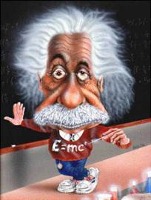Excerpt "Playing The Wisdom Game"
Copthorne Macdonald

Wisdom is internal, embodied by persons. Words of wisdom arise from it. Wise behavior arises from it. But wisdom itself is not its products. Wisdom is a mode of cognition — one rooted in perspectives, interpretations, and values. Wisdom is not about facts per se, it is about the context-linked meaning of facts. It is about the significance of facts and their implications. Wisdom is a kind of meta-knowledge that helps us make better sense of the rest of our knowledge. Wisdom does this by relating our ordinary everyday knowledge to a variety of contexts, and by viewing it from a variety of illuminating perspectives. Among those perspectives are:
The self-knowledge perspective
Wise people have a greater than ordinary understanding of themselves. They are aware of their strengths and weaknesses and have developed "workarounds" to stay out of trouble. Because they have paid attention to how their own minds work, they are better able to understand the mind processes of others.
Laws-of-nature perspective
We contemplate doing things in the physical world and ask ourselves: Will this work? What will be the consequences of doing this? In such circumstances an understanding of basic scientific laws can at times lead to better, wiser, decisions.
Laws-of-life perspectives
If we are observant, we eventually sense some general rules that apply in our relations with other people: Sexual infidelity almost always causes pain for someone. Angry words shut down communication. We rarely adopt other people's lists of dos and don'ts, but if we see these generally applicable truths for ourselves they can help guide our actions.
The system perspective
The system perspective on reality is a powerful tool for understanding the world around us. Complexity in the natural world emerges as a hierarchy of natural systems or holons which have the property of being a whole at their own systemic level and a part or component in a system at the next level up the hierarchy. The physical hierarchy of systems moves from subatomic particles to atoms to molecules to crystals and cells, to living organisms, then to ecosystems, the biosphere, the solar system, the galaxy, and the universe. In another branch of this hierarchy, human beings start communicating with each other and give birth to those systems we call societies, economies, and nations.
The evolutionary perspective
What is the universe up to? Where does humanity fit in? Have we become agents of the evolutionary process? Some wise people have developed an understanding of our cosmic and evolutionary contexts and found it helpful to look at the human situation from this "big picture" vantage point.
The complexity-of-causation perspective
There is a human tendency to simplify causation. We pick out some dominant element in a situation and call it "The Cause," when in fact there are myriad necessary elements — an entire causal matrix — with roots that go back to the origin of the universe.
Broadened-identity and "oneness" perspectivesAs a person develops psychologically and spiritually, their sense of identity tends to broaden. Their circle of concern and identity widens from me, to us — and for a few, to the entire universe and its underlying ground.
The finiteness-of-life perspective
Time is the raw material of our life, and a conscious awareness of our eventual death helps us to keep our life on a meaningful track and avoid meaningless, life-wasting detours.
A host of "high-values" perspectivesThe deeply-held values of wise people are vantage points from which to view life situations and the world: Is this just? Is this truthful? Is this caring and compassionate? Etc.
THE ROLE OF VALUES IN WISDOM
Nicholas Maxwell has called wisdom "the capacity to realize what is of value in life for oneself and others."[2] The embracing of "high" or "superior" values is a hallmark of wisdom. High values have two roles in the lives of wise people. First, they provide those illuminating slants on the data of life. Second, they guide the decision-making process toward wiser decisions.
Human decision-making is a largely unconscious process in which a constantly shifting hierarchy of internalized values interacts with a constantly shifting set of perceived circumstances and retrieved memories. Some values, such as survival and reproduction, are hardwired. Other values, and their position in the value hierarchy, are the products of life experience and the influences to which we have been exposed. At any given moment our decisions are made by the combined action of:
The brain-mind process currently in charge
The hierarchy of value priorities that exists at that moment
The perceived nature of the situation calling for a decision
Memories of similar or related situations
Regarding item one, above, there are three distinct brain-mind processes, each having its own hierarchy of values:
The instinctive/reactive process located in the earliest parts of our brain to evolve — the structures of the brain stem and limbic system and their change-resistant programming
The intellectual process: Typically centered in the left hemisphere of the neocortex
The intuitive process: Less clearly understood, but generally associated with the right, nonverbal hemisphere
These processes and their values work together to make our decisions and control our behavior in the same way a computer's hardware and software work together to make the computer's decisions and control its outputs. We can look at the three brain-mind processes as the hardware of our behavioral control system. And the internalized values that each process utilizes constitute the heart of the software.
Copthorne Macdonald - About the Author:
Copthorne Macdonald is a writer and independent scholar. His interests include the nature of reality (including consciousness and mind) and the development of wisdom. He has written extensively in these areas, and his published writing to date includes 8 books (3 on the subject of wisdom) and over 130 shorter pieces. Since 1995 he has tended The Wisdom Page — a website devoted to wisdom resources.
Read more: http://www.articlesbase.com/self-improvement-articles/playing-the-wisdom-game-199016.html#ixzz1SgJ5CddjUnder Creative Commons License: Attribution No Derivatives